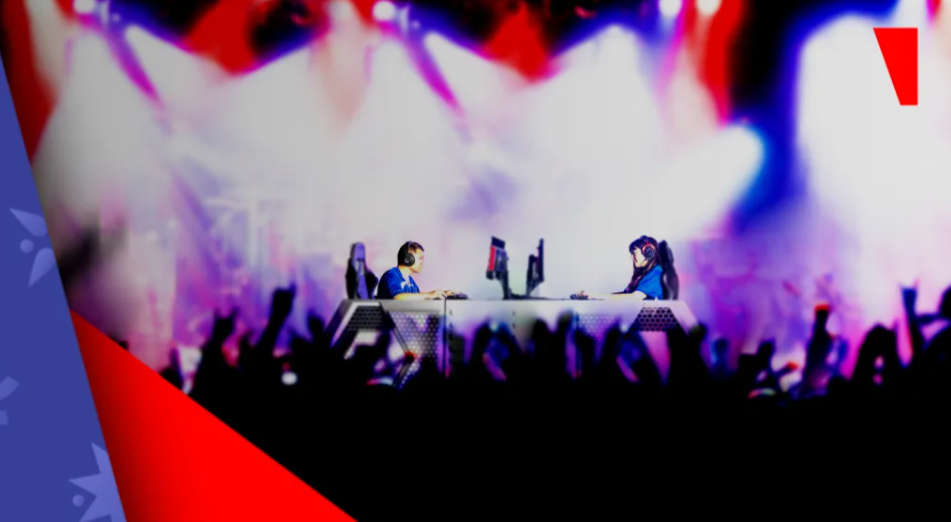
My first foray into the world of video games took place around 1987 when, aged 7, I was bestowed my uncle’s hand-me-down Commodore 64. Lemmings blew my mind, and discovering Paperboy was a pivotal childhood moment. I was never a sporty kid, instead spending my Saturdays playing The Legend of Zelda on the NES while the neighbours whispered about “The mother at number 22 who lets her daughter stay in her pyjamas in front of the computer all day.”
Little did they know my mum was my wingman, shouting “Behind you!” as I faced down dungeon bosses like my life depended on it. While other kids came home sweaty from after-school sports, I came away with blistered thumbs, a closer bond with my mum, and a sense of accomplishment that no school sports day ever gave me.
And that’s what gaming has been for a lot of people: a refuge for the ones who didn’t make the team. The daydreamers, the strategists, the “anti-social” kids who thought in patterns and pixels instead of penalties and passes.
But as esports grows, those kids finally have a stage. They can compete, be recognised, and become role models.
It’s for this reason that I understand the community’s discomfort with the increase in esports betting sponsorships. It’s like seeing your favourite indie band suddenly do a perfume advert; you get it, they need the money, but it still stings a little.
Traditional sports and betting have been married for decades. From shirt logos to stadium naming rights, the link between sport and wagering is practically written into the rulebook. But in esports, it’s a different story. The fans are younger, the culture more protective, and the community has a long memory for the times it has been burned.
A quick glance at Reddit gives you an idea of some the sentiment out there:
These aren’t isolated grumbles, they’re snapshots of a wider tension. For every fan excited about esports becoming a mature, commercially stable ecosystem, there’s another who fears it’s losing its soul in the process.
Esports and betting come from different worlds. Traditional sports were built in pubs and stadiums; esports was born in bedrooms and internet cafés. Its roots lie in message boards, LAN parties and Twitch chats, not bookmakers and beer ads.
That difference matters. Esports celebrates mental precision, quick thinking and strategy; traits often belonging to people who didn’t fit the physical, athletic mould. Authenticity sits at its core, so when a betting logo appears, it can feel out of step with the culture.
The demographic adds another layer. The average fan is under 30, many still in their teens. They’re not naïve, but they are quick to sense exploitation. Parents already worry about time online, so when gambling sponsors enter the frame, it can easily become dicey territory.
Still, not every community voice is opposed, there are lots who understand that survival sometimes trumps sentiment:
That blend of resignation and realism captures where esports stands today: caught between cultural sensitivity and financial necessity. The community isn’t necessarily rejecting the money; it’s rejecting being misrepresented.
Here’s the irony: without betting sponsorships, many organisations would struggle to survive. The esports boom has cooled, investment is shrinking, and teams are cutting back. Betting brands have the budgets to plug those gaps; funding prize pools, salaries and production quality.
The challenge is ensuring that money strengthens the ecosystem rather than defines it. That means:
If handled well, sponsorships could help the kid who’s brilliant at Valorant but can’t afford a new PC, or the all-female team trying to break through.
At its heart, esports isn’t so much about money or fame as it is about recognition. It’s about the talented teenager who never quite fit in finding something they’re world-class at, something that they should be able to make a living from.
So yes, bring in the sponsorships if we must. But bring them in wisely. Bring them in with empathy. Make sure that every euro funnelled into the scene lifts someone up, not pulls them in.
If the industry keeps this sentiment at its core; investing in the players, not just the platform, then maybe we won’t have to choose between growth and integrity. Why not both?
Join the world’s biggest iGaming community with SiGMA’s Top 10 News countdown. Subscribe HERE for weekly updates, insider insights, and exclusive subscriber-only offers.
#EsportsCulture #GamingCommunity #ResponsibleSponsorship #EsportsIntegrity #iGamingEthics